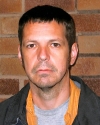Utopian Writing & Contemporary Science Fiction
- Spring 2017
Additional Details:
This course will trace the history of utopian writing as one central determining feature of the development of science fiction as a genre. The course is designed to provide students with an introduction to the study of science fiction, but it is also intended for students more generally interested in the place of utopian thought in contemporary criticism, theory, and political culture. We will primarily depend on Claeys and Sargent’s Utopia Reader (2nd editon) to define the historical tradition, which we will supplement with readings in the history of European travel literature and colonialism, as well as feminist and African American utopian narratives. We are likely to read Edward Bellamy’s Looking Backward: 2000-1887, with some attention to later responses, appropriations, and rewritings of Bellamy, such as William Morris, but especially African American writers like Edward A. Johnson and Lillian Jones Horace. Other critical readings will include Darko Suvin’s Metamorphoses of Science Fiction and Tom Moylan’s Demand the Impossible (especially to define the ongoing transformations of the utopian tradition) as well as shorter works by critics that may include John Rieder, Gwyneth Jones, Frances Bartkowski, Ernst Bloch, Sylvia Wynter, Fredric Jameson, Michael Hardt and Antonio Negri, Alexander Galloway, Jose Munoz, Alexander Weheliye, Nnedi Okorafor, Grace Dillon, Stephen Hong Sohn, Mark Jerng, Jane Bennett, and Pheng Cheah. More contemporary SF novels will include Joanna Russ’s The Female Man; Samuel R. Delany’s Stars in My Pocket Like Grains of Sand; Bruce Sterling’s Distraction; and Nisi Shawl’s Everfair; and possibly Cory Doctorow’s Little Brother or Hannu Rajaniemi’s The Quantum Thief. We will also read short stories that may include works by Sofia Samatar, Bruce Sterling, Benjamin Rosenbaum, Ted Chiang, Aliette de Bodard, Ken Liu, Ursula K. LeGuin, Rachel Swirsky, Kim Stanley Robinson, Nisi Shawl, Nalo Hopkinson, Octavia Butler, Gerald Vizenor, Drew Hayden Taylor, Eden Robinson, and Darcie Little Badger. Some of our key critical questions are likely to include the relation between utopia and dystopia and the limits of the utopian/dystopian polarity; how to imagine the future of gender, sexuality, race, and colonialism; alternatives to reproductive futurity; network societies, post-industrial economies, and the social and political implications of computer-mediated communication; the relation of utopian traditions to the projects of speculative realism, object-oriented ontology, and new materialisms; and the relation of utopian and science fiction to models of “organic fantasy” (Okorafor) and indigenous futurisms (Dillon). The primary assignment will be a final research paper.
